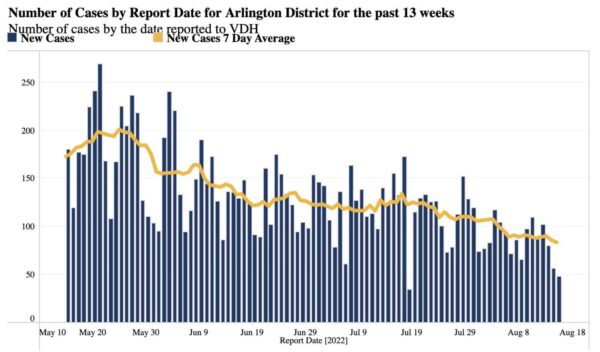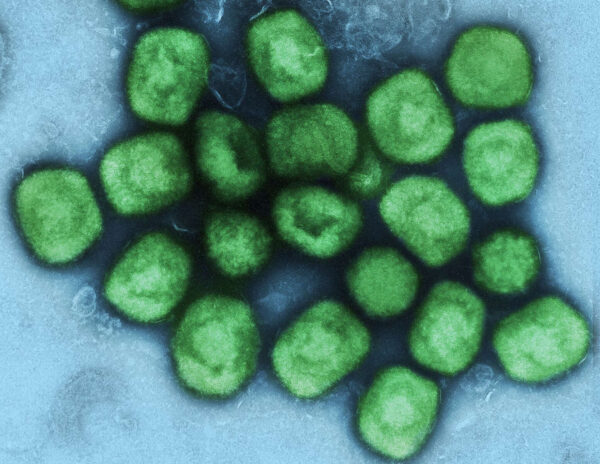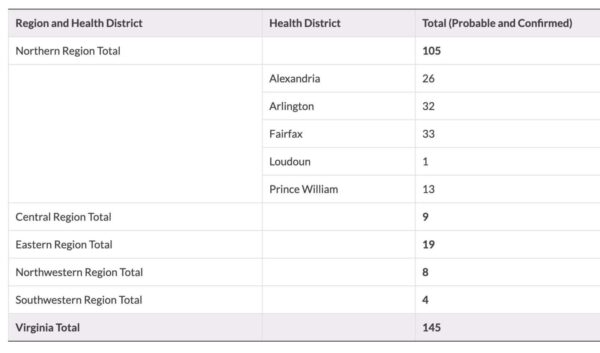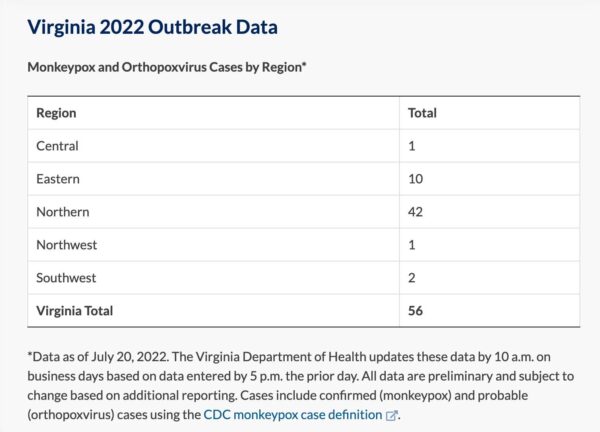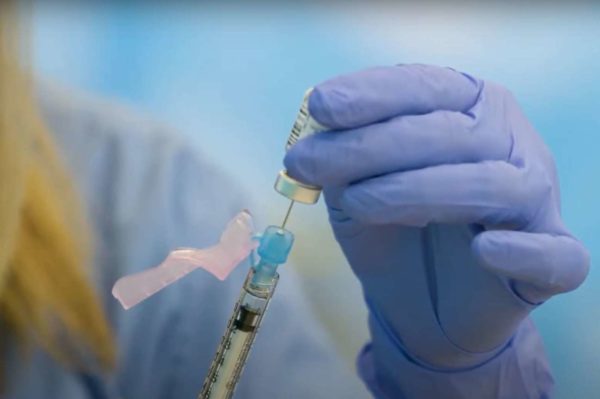
Have you had sex with multiple partners — or someone whose name you don’t know — over the past two weeks?
If so, you’re now officially eligible for a monkeypox vaccine in Arlington.
Arlington County has widened its previous vaccine eligibility criteria to include people of all genders and orientations who are engaging in potentially risky sexual behavior. That includes those who “have had anonymous or multiple (more than one) sexual partners in the last two weeks.”
As before, sex workers or staff of “establishments where sexual activity occurs” are included regardless of gender.
Arlington’s health department, meanwhile, has launched a new online request system for the JYNNEOS monkeypox vaccine.
Arlington County has recorded a total of 54 monkeypoxes since the outbreak began, according to Virginia Dept. of Health data. That’s up from 39 cases on Aug. 15.
About 4,700 people in Northern Virginia have received the monkeypox vaccine so far, according to VDH.
More from an Arlington County press release, sent Thursday afternoon, below.
The Arlington County Public Health Division (ACPHD) has expanded eligibility for the monkeypox virus vaccine and launched a new appointment request process.
The expanded vaccine eligibility aligns with current Centers for Disease Control and Prevention (CDC) and Virginia Department of Health (VDH) criteria and now includes Virginia residents of all ages of any sexual orientation or gender who meet one of the following:
- Have had anonymous or multiple (more than one) sexual partners in the last two weeks; OR
- Are a sex worker; OR
- Are a staff member at an establishment where sexual activity occurs (bathhouses, saunas, sex clubs, etc.)
The criteria for being vaccinated may be updated in the future.
Close contacts of known cases continue to be eligible and prioritized for the monkeypox vaccine.
ACPHD also launched a more streamlined process to request an appointment for a first dose of the monkeypox vaccine. People who meet the eligibility criteria can request an appointment by visiting acphdmpv.timetap.com. ACPHD will review all requests to verify eligibility before confirming the appointment.
Starting this week, ACPHD also began administering the monkeypox vaccine using the intradermal (in between the layers of the skin) method and dose in accordance with federal and VDH guidelines. People ages 18 years or older who received their first JYNNEOS dose by the subcutaneous (under the skin) method will receive their second dose by the intradermal method to complete their vaccination series.
Monkeypox is a contagious rash illness caused by the monkeypox virus. In most cases it resolves without treatment. It is spread by close contact with an infected person. Close contact includes touching skin lesions, bodily fluids, or clothing or linens that have been in contact with an infected person. Spread can also occur during prolonged, face-to-face contact.
While anyone can catch monkeypox if they have close contact with someone with the virus regardless of gender identity or sexual orientation, many of those affected in the current global outbreak are gay, bisexual, or men who have sex with men. People with monkeypox in the current outbreak generally report having close, sustained contact with other people who have monkeypox.
Currently, the highest risk activity is having sex with multiple or anonymous partners. Avoiding these activities greatly reduces one’s risk of catching or spreading monkeypox. Monkeypox does not spread from person to person from walking past someone who is infected or through casual conversation with someone who is infected.
If someone has a new or unexpected rash or sores, they should work with their health care provider to determine the cause. Health care providers in Arlington can visit ACPHD’s Monkeypox for Healthcare Providers website for more information and how to contact us should they have questions.


